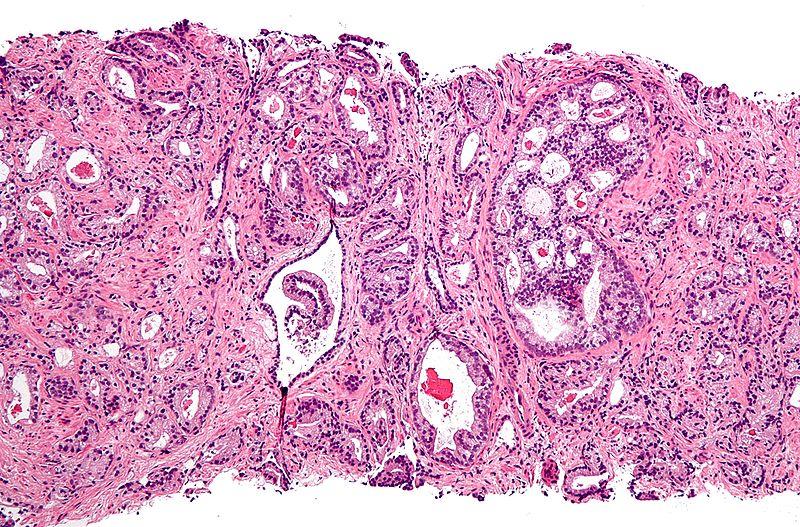9/11 prostate cancer is one of the most common cancers among individuals exposed to 9/11 toxins. It was first added to the WTC Health Program List of Covered Conditions, and consequently eligible for compensation from the 9/11 Victim Compensation Fund, in 2013.
The rapidly increasing rate of young men diagnosed with 9/11 prostate cancer encouraged Chief of the Division of Hematology and Medical Oncology at Icahn School of Medicine at Mount Sinai, Dr. William Oh, to research the relationship between exposure to 9/11 toxins and 9/11 prostate cancer.
The long-time inconclusive research on this link is due primarily to the long latency period of prostate cancer and subsequent lack of focus on exposure to 9/11 toxins on the prostate.
Nonetheless, physicians and researchers had long speculated the link between toxic dust exposure and the development of aggressive 9/11 prostate cancer.
They were right!
In 2012, an FDNY study found a significant increase of 9/11 prostate cancer in FDNY officers related to 9/11 than among the general male population not present in the exposure zone during the attacks and the following months. On May 2, 2013, the Administrator of the WTC Health Program received a petition to add 9/11 prostate cancer to the WTC Health Program Covered Conditions (list of health conditions determined to be caused by 9/11 toxins exposure).
The Molecular Cancer Research Journal published research that observed 15 men who were first-responders on September 11, 2001 at Ground Zero and later developed 9/11 prostate cancer and compared those men to 15 men with prostate cancer who were not exposed to the 9/11-related toxins. Research shows that the group of men exposed to the dust had an increase in inflammatory T-cells, which are responsible for a variety of autoimmune inflammatory diseases and tumor growth.
In an effort to further evaluate these findings, Dr. William Oh scientists exposed rats to preserved dust taken from the World Trade Center site within 72 hours of the attacks. The rats were exposed for 2 hours, on 2 consecutive days, with enough dust to replicate the levels 9/11 first responders inhaled between after September 11, 2001.
It may surprise many to discover that this short 3-day period of exposure period was enough to cause the mutation and consequent growth of cancer cells.
In the rats, T-cells in the prostate increased at the same level as found in the 15 9/11 first responders suffering from 9/11 prostate cancer who were studied.
“World Trade Center responders show an overall increase in cancer incidence, and specifically of certain cancer types such as prostate cancer,” said Emanuela Taioli, MD, PhD, Director of the Institute for Translational Epidemiology at the Icahn School of Medicine at Mount Sinai and Associate Director for Population Science at The Tisch Cancer Institute. “It is important to address the reasons why this is happening in order to prevent new cases in this aging cohort. Our findings represent the first link between exposure to World Trade Center dust and prostate cancer.”
“Several years ago, I saw a first responder in his 40s who began having symptoms of prostatitis, a painful condition that involves inflammation of the prostate, soon after exposure to the World Trade Center dust,” said William Oh, MD, Chief of the Division of Hematology and Medical Oncology at the Icahn School of Medicine at Mount Sinai and Deputy Director at The Tisch Cancer Institute. “He ultimately developed a high-grade prostate cancer several years later. It suggested to me that there might be a link between his exposure and cancer, but I knew that I would need to examine it systematically.”
9/11 prostate cancer typically becomes present in older men, and may even have a latency period of 20 plus years, as research shows. In fact, a study has shown “the WTC attacks affected the health of the FDNY workforce resulting in more post-9/11 retirements than expected,” and so an unjust award, or the refusal thereof, causes families to lose future wages and earnings earlier than expected, and receive no monetary assistance from the funds created for this very purpose, all because they got sick just a bit too late.
This research confirms the long-pondered link between World Trade Center dust and the inflammatory response in men. If the Victim Compensation Fund is not funded past its current December 2020 deadline, then otherwise eligible victims of WTC-related health issues would not be rightfully compensated despite the conclusory research, which provides proof of 9/11-related prostate cancer on a molecular level. The long latency periods of cancers such as prostate cancer would make victims with eligible conditions, ineligible for compensation.
This 9/11 prostate cancer article is co-authored by Raquel Vasinkevich



